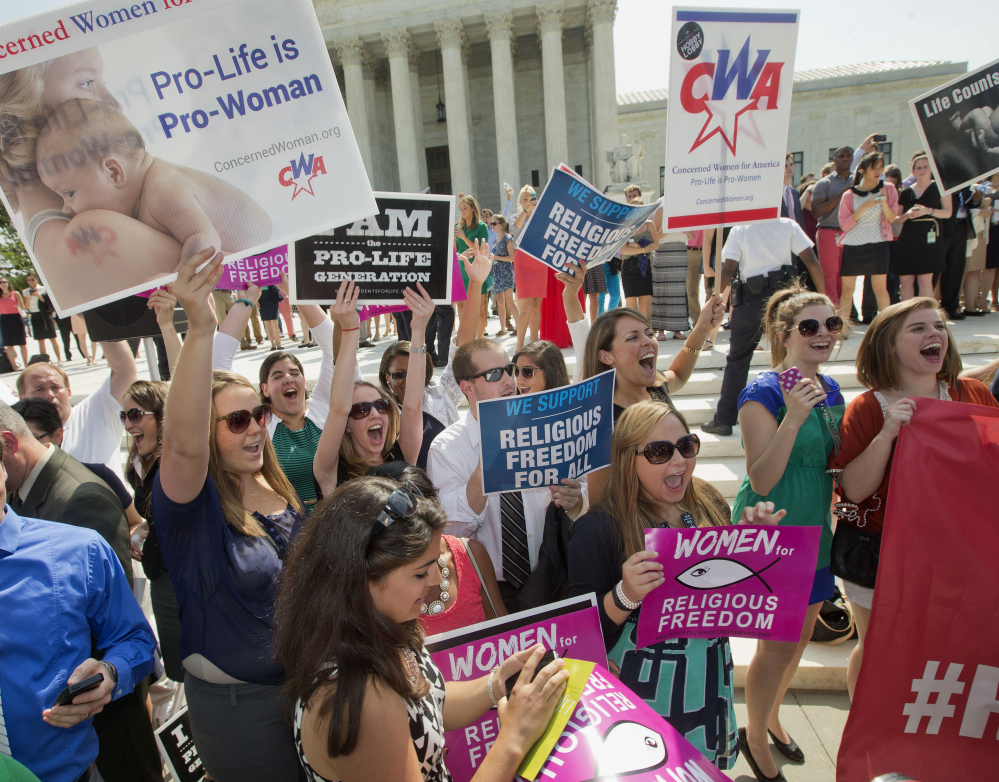The decision is deeply problematic on many levels. First, this is the first time that the Supreme Court has held that a for-profit corporation can claim to have religious beliefs. A corporation – a fictional entity – is created to protect its owner from liability. So long as the corporation is run as a separate entity, the owner is liable only for what he or she invests in it.
But a fictional entity cannot have a religious conscience or religious beliefs. The liabilities of the corporation are not attributed to the owners, so why should the owners be able to attribute their beliefs to the company?
This is no different for family-owned businesses than it is for any other corporations. Hobby Lobby, the corporation that challenged the contraceptive mandate, operates hundreds of stores with thousands of employees. By creating a corporation, the owners chose to get the benefits of having an entity separate from themselves; they should accept the burdens of not being able to claim that the business is an extension of their religious views.
Moreover, the court did not keep other corporations from claiming the same religious freedom; it just said that in this case it was considering only whether the contraceptive mandate infringed religious freedom for closely held corporations.
Second, the court mistakenly concluded that it substantially burdens the religious freedom of the corporation to require that it provide insurance that includes contraceptive coverage. The companies, and their owners and officers and directors, are not required to use or endorse contraception; they remain free to openly express opposition to the use of contraceptives. Never before has the Supreme Court found a substantial burden on a person’s religious exercise where the individual is not himself required to take or forgo action that violates his or her religious beliefs but is merely required to take action that might enable other people to do things that are at odds with the person’s religious beliefs.
This holding is sure to lead to countless other challenges. Christian Scientists will claim that they do not have to provide any health insurance to their employees. In fact, why couldn’t an employer, at least in a family-owned business, require as a condition of employment that no money paid as salary will be used to buy contraceptives, or other things that violate the employers’ religious beliefs? If the employer does not have to have his or her money used for things deemed religiously objectionable, why would this be limited to dollars paid for employees’ insurance?
Corporations are sure now to try to claim that other laws, outside the health care context, violate their religious beliefs. Justice Samuel A. Alito Jr., writing for the majority, addressed this as it might apply to racial discrimination by saying, “The government has a compelling interest in providing equal opportunity to participate in the workforce without regard to race, and prohibitions on racial discrimination are precisely tailored to achieve that critical goal.”
But what of employers who have a religious belief that women with children should not work outside their homes, or businesses that claim a religious basis for sexual-orientation discrimination? The court’s pointedly focusing only on racial discrimination surely will inspire business to claim a religious right to discriminate on these grounds.
Third, the court failed to recognize that ensuring the availability of contraceptives for women justifies the health care mandate. Since 1965, the Supreme Court has recognized a fundamental right to buy and use contraceptives. Indeed, the court accepted that requiring contraceptive coverage in insurance serves a compelling purpose in ensuring the availability of contraceptives for women. But it also said that there is a less restrictive alternative: The government could choose to provide contraceptives directly to women. As Justice Ruth Bader Ginsburg points out in dissent, that could be said of anything employers object to on religious grounds, such as immunizations. Moreover, requiring that women go through an entirely separate insurance program for contraceptives is certainly more burdensome for them.
Once more, the court’s conservative majority has engaged in stunning judicial activism in striking down a federal law based on its own conservative beliefs. The immediate losers are women who work for family-owned businesses whose owners object to contraception on religious grounds. But the implications are much greater than that. Despite all of the claims that its holding was narrow, the Supreme Court’s decision is the broadest in American history.
Send questions/comments to the editors.




Success. Please wait for the page to reload. If the page does not reload within 5 seconds, please refresh the page.
Enter your email and password to access comments.
Hi, to comment on stories you must . This profile is in addition to your subscription and website login.
Already have a commenting profile? .
Invalid username/password.
Please check your email to confirm and complete your registration.
Only subscribers are eligible to post comments. Please subscribe or login first for digital access. Here’s why.
Use the form below to reset your password. When you've submitted your account email, we will send an email with a reset code.